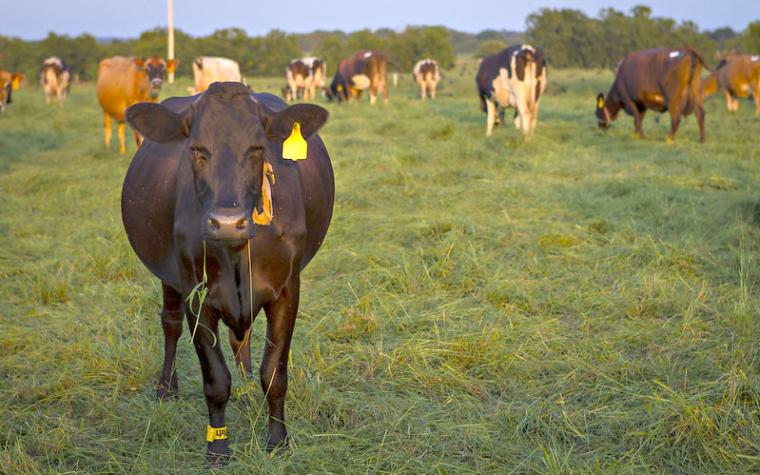STOCKTON, Mo. – “Summertime brings factors that lead to anaplasmosis in cattle operations,” says Patrick Davis, University of Missouri Extension livestock field specialist. Anaplasmosis can affect cattle operation performance due to calf abortions, decreased weight gain, bull infertility and animal death.
“Anaplasmosis is caused by red blood cells being infected by the blood parasite Anaplasma marginale,” says Davis. The infection causes an immune response, destroys red blood cells and leads to anemia in cattle. To reduce herd anaplasmosis, Davis encourages cattle producers to reduce modes of transmission, which include ticks, flies and mechanical vectors.
“Fly and tick control during the summer months is helpful to reduce anaplasmosis,” says Davis. Methods of control include backrubbers, dust bags, insecticide tags and strips, sprays, insecticides and oral larvicides. Davis encourages cattle producers to identify and incorporate the best of these options in their operation to control external parasites and reduce herd anaplasmosis.
“Work with veterinarians to determine strategies to reduce herd anaplasmosis,” says Davis. Feeding chlortetracycline during the fly and tick season might be helpful in reducing anaplasmosis. This strategy requires veterinary approval in the form of a veterinary feed directive. Davis encourages cattle producers to use this as well as other veterinarian suggestions to reduce anaplasmosis.
“Anaplasmosis can be transmitted through needles and other equipment while cattle are being vaccinated and processed,” says Davis. He encourages cattle producers to discuss these practices with their veterinarians to develop management strategies to reduce herd anaplasmosis.
“Controlling anaplasmosis helps promote optimum cattle herd productivity and profitability,” says Davis. Contact your local MU Extension livestock field specialist for more information on controlling anaplasmosis in your cattle herd.
